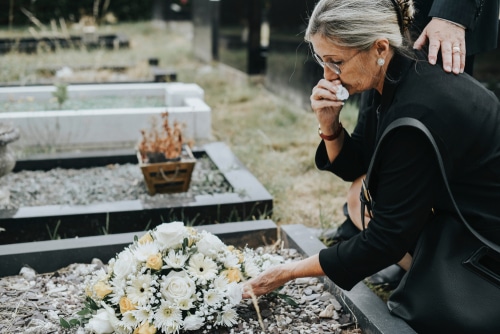As you age, you may be concerned about how your surviving spouse or children will be taken care of financially after your passing. Alternatively, when a family member dies, you may start to consider how your family will support itself, especially if the person who died – the deceased – was the primary provider. Payments from Social Security Disability Insurance (SSDI) survivor benefits may be one way that your family can make ends meet. Information on claiming survivor benefits can be complicated and sometimes confusing, and it would a good idea to consult with an attorney to avoid making a mistake that could cost you benefits.
One-time SSI Payment
 There is a one-time lump sum SSDI benefit of $225 payable to a spouse living with the deceased in the same household at the time of death. This is also payable to the deceased’s children, and spouses not living in the same household if they:
There is a one-time lump sum SSDI benefit of $225 payable to a spouse living with the deceased in the same household at the time of death. This is also payable to the deceased’s children, and spouses not living in the same household if they:
- were receiving benefits on the deceased’s record at the time of the death; or
- were eligible to receive benefits at the time of death.
Monthly Survivor Benefits for Spouses
In order to qualify for survivor benefits, the survivor has to be a spouse of the deceased and:
- 60 or older;
- 50 or older and disabled; or
- Any age and caring for the deceased spouse’s child who is younger than 16 or disabled.
In some cases, the deceased’s parents may also qualify for benefits if they were dependent on the deceased for at least half of their support. Under certain circumstances, an ex-spouse may also be considered a survivor eligible to receive survivor benefits.
Generally, the deceased spouse is required to have worked for at least ten years in order for their spouse to receive survivor benefits. However, in some cases, where the surviving spouse is caring for the deceased spouse’s child, the deceased spouse only needs to have worked for one and a half years in the three years before death.
The amount of benefits the surviving spouse receives depends upon two factors: the age of the surviving spouse, and whether or not the deceased spouse was receiving benefits at the time of death. Survivors may receive anywhere from 71.5% to 100% of the deceased spouse’s benefits.
It may come as a surprise to some survivors that receiving their late spouse’s SSDI benefits may decrease their own SSDI benefits. Other factors that may affect the survivor’s benefits include remarriage before a certain age, as well as whether or not the surviving spouse continues to work while receiving benefits.
Survivor Benefits for Children
Unmarried children can receive survivor benefits if they are:
- Younger than 18 years old;
- Between 18 and 19 years old, and enrolled as full time students in an elementary or secondary school; or
- 18 years or older and disabled, with a disability that started before the age of 22 years old.
Stepchildren and grandchildrenof the deceased may also receive benefits in some situations.
For children, the benefits will be 75% of the benefits of the deceased parent. For the children below 18 years old, and those in schools, the benefits end when they turn 18 and graduate respectively.
How an Attorney Can Help
The Social Security Administration provides a guide to understanding SSI benefits. However, the rules governing survivor benefits may be difficult to understand; an attorney can help you understand the amount of benefits you qualify for, and help you apply for them.
